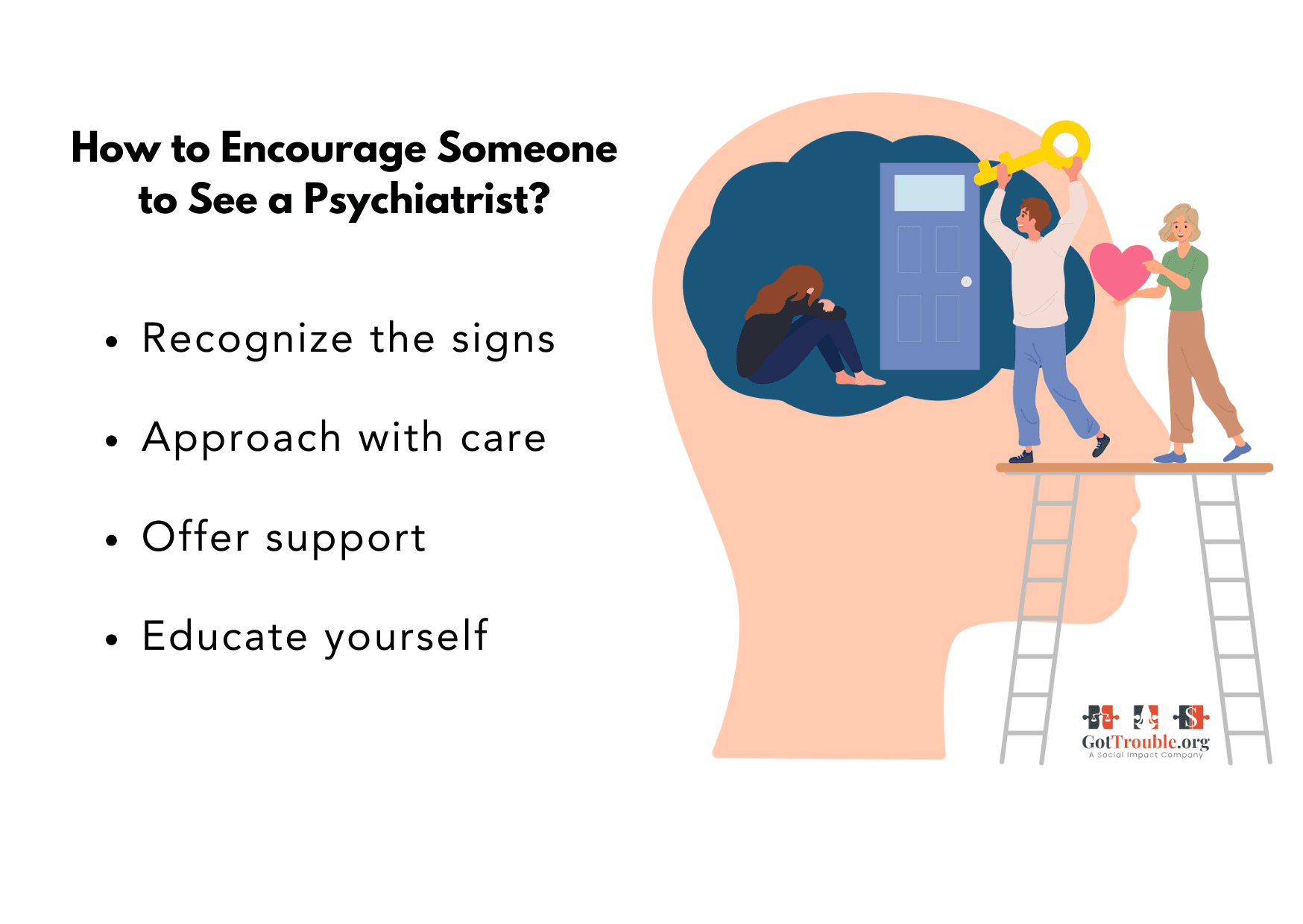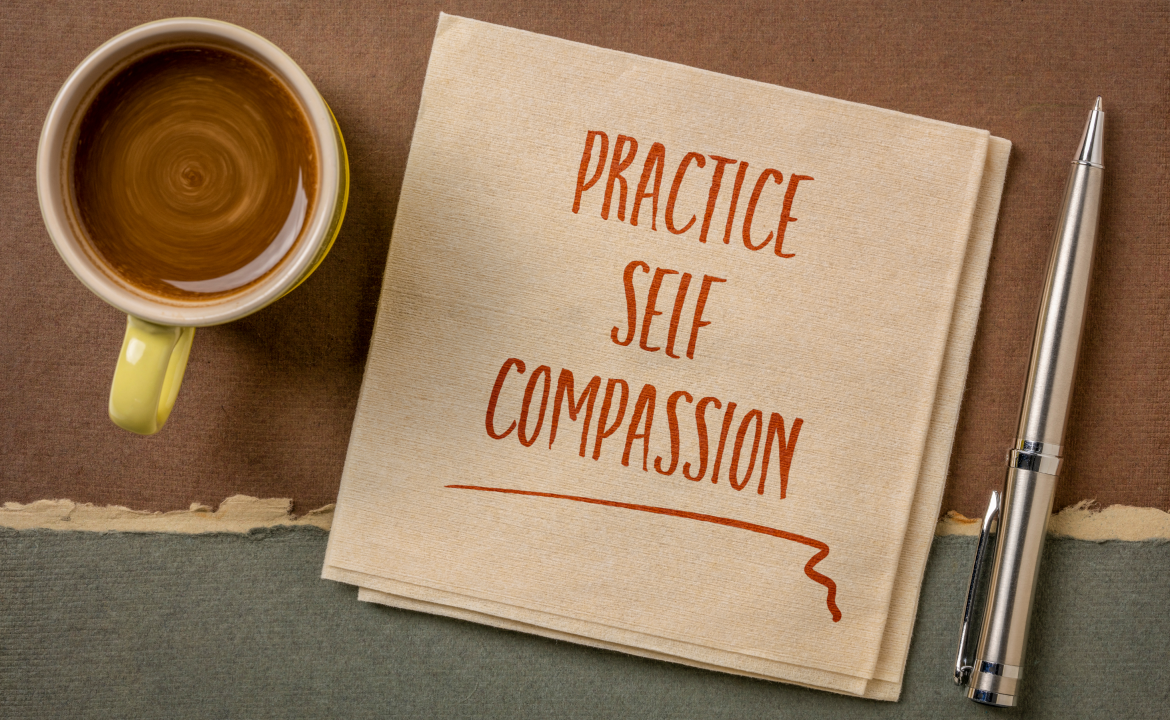One of the most important professionals in mental health is the psychiatrist, a medical doctor who specializes in diagnosing, treating, and preventing mental disorders.
Unlike clinical psychologists, who focus more on psychotherapy, psychiatrists are medical doctors who specialize in medication-based management for those seeking relief from specific mental disorders.
This article will explore what psychiatrists do, how they can help a person’s mental health, and what you can expect when seeking their care.
What is a psychiatrist?
A psychiatrist is a medical doctor who has completed medical school and specialized in psychiatry, the branch of medicine that focuses on diagnosing and treating psychiatric disorders and mental health conditions.
Unlike clinical psychologists, psychiatrists are trained to prescribe medications and provide medical treatment in addition to talk therapy. They have extensive training in understanding the connections between physical aspects of health, such as brain chemistry, and mental health issues, such as depression, anxiety, and panic disorder.
Psychiatrists work to treat a wide variety of mental health problems that can affect everyday life, such as mood disorders, anxiety disorders, and behavioral disorders. Their training allows them to evaluate their condition’s psychological and physical aspects.
Most psychiatrists undergo at least four years of training in general psychiatry, where they gain experience in evaluating and treating mental illnesses in various settings.
The Difference Between Psychiatrists and Other Mental Health Professionals
It’s important to understand the difference between psychiatrists and other mental health professionals. While both psychologists and psychiatrists may provide therapy, psychiatrists can prescribe medication as part of their treatment plans.
Psychiatrists often work alongside clinical psychologists and other mental health professionals to offer comprehensive care.
In addition, psychiatry residents must undergo extensive training in diagnosing and treating psychiatric disorders. Many spend time in specialized fields such as consultation liaison psychiatry or psychosomatic medicine, which focuses on caring for patients with comorbid conditions.
Moreover, psychiatrists also complete additional specialized training in various fields of psychiatry, such as child and adolescent psychiatry, geriatric psychiatry, forensic psychiatry, sleep medicine, and addiction psychiatry.
Statistic: In 2021, more than 1 in 5 US adults, or 57.8 million people, experienced a serious mental illness.
When Should You See a Psychiatrist?
You should consider seeing a psychiatrist if you’re experiencing persistent or severe mental health problems.
Some signs that it might be time to seek psychiatric care include:
- Prolonged feelings of sadness or hopelessness
- Extreme mood swings
- Overwhelming anxiety, panic attacks, and obsessive fears
- Trouble concentrating, making decisions, or completing tasks
- Persistent feelings of stress
- Unexplained physical symptoms like compulsive eating or dieting may be related to mental health conditions
- Thoughts of self-harm or suicide
What to Expect During a Psychiatric Evaluation
When you first visit a psychiatrist, you’ll undergo a psychiatric evaluation.
This evaluation typically involves:
- A thorough discussion of your symptoms, thoughts, and feelings
- Review of your family history of mental health issues or disorders
- A physical examination to rule out any medical conditions that may be affecting your mental health
- Questions about your everyday life, including work, relationships, and habits
Psychiatrists use various diagnostic tools to assess mental health, including the Diagnostic and Statistical Manual of Mental Disorders (DSM). This manual is widely used in psychiatry to diagnose and classify mental disorders.
Your psychiatrist may also ask about your medical history and order lab tests to check for physical issues that might contribute to mental health symptoms, such as a pre-existing thyroid condition that can cause fatigue.

How Psychiatrists Can Help: Treatment Options
Psychiatrists offer a variety of treatments to help patients manage psychiatric disorders. These treatments can include medications, therapy, and other forms of medical treatment.
Medications
One of the primary ways psychiatrists treat mental disorders is by prescribing medications. These medications help balance the brain’s chemical signaling and control disabling symptoms of mental health conditions.
Common types of psychiatric medications include:
- Antidepressants: Antidepressants are often used to treat depression and anxiety.
- Mood stabilizers: Used to treat bipolar disorder and other mood disorders.
- Antipsychotics: Prescribed for schizophrenia and severe mood disorders.
Medications are tailored to each individual, and psychiatrists must regularly monitor their patients to adjust dosages as needed or consider prescribing alternative medicines.
Many professionals contend that psychiatry deals primarily with chemically reducing the symptoms of a disorder. At the same time, clinical psychologists treat the deep-rooted cause of the patient’s condition through psychotherapy that aims to unveil a patient’s repressed memory of much earlier psychic trauma.
Others seek psychiatric care for depression, acute and generalized states of anxiety, panic attacks, and phobia disorders such as agoraphobia, which is the fear of leaving the safety of one’s home.
Formulating a diagnosis
Before beginning therapy and attempting to formulate a working diagnosis of the patient, psychiatrists usually want first to rule out any organic causes that may be the source or contributing feature to the patient’s symptoms.
Psychiatrists often first refer patients for a complete medical workup, including laboratory blood screening and neurophysiological testing by a neurologist.
These exams help to understand better whether there is a causal connection between the patient’s emotional illness and a previously undiagnosed medical condition.
For example, loss of energy and motivation can be caused by a hormonal imbalance.
Psychiatrists lean toward prescribing medication
Psychiatrists usually prescribe medications in combination with psychotherapy. Also, a patient will decide to confer with a psychiatrist solely to manage the patient’s medication and utilize a clinical psychologist’s professional services for psychotherapy purposes.
Many mental health professionals believe psychologists are far more adept in performing psychotherapy than psychiatrists because the physiatrist relies on treating the patient’s symptoms through medication rather than getting at the core of the problem through psychotherapy.
New treatment modalities
Newer treatment modalities now being used with some frequency by the psychiatric profession include Deep Brain Stimulation and Transcranial Magnetic Stimulation (TMS).
The above medical technologies are believed to restore a patient’s brain to a baseline level by disrupting neural networks that may have caused or contributed to the disorder.
The Diagnostic Statistical Manual (DSM)
Both psychologists and psychiatrists formulate their diagnoses based on the Diagnostic Statistical Manual of Mental Disorders.
The DSM-5 provides over 200 descriptions of disorders or combinations of disorders, including associated symptoms and criteria for diagnosing a particular condition and include:
- ADHD (Attention Deficit Disorder)
- Anxiety Disorder
- OCD (Obsessive Compulsive Disorder)
- PTSD (Post Traumatic Stress Disorder
Statistic: Overall Increase in Psychiatric Medication Use: From 1999 to 2014, the use of psychiatric medications increased by 64%, indicating a growing reliance on medication for managing mental health disorders.
Types and purpose of psychiatric medications
Patients on long-term medication must periodically meet with their psychiatrist to monitor the medication’s progress and potential side effects.
Antidepressants
Antidepressants such as Zoloft and Paxil are used to treat depression and anxiety disorders. These are known as SSRI medications, which stand for selective serotonin reuptake inhibitors.
Sedatives
Sedatives are depressants that act on the central nervous system and vary widely in potency. Sedatives slow down brain activity, thereby making a patient feel more relaxed.
Sedatives are used for anxiety disorders and insomnia. Common sedatives include barbiturates, benzodiazepines, and sleep-inducing drugs such as zolpidem.
Hypnotics
Hypnotics are used to induce a sense of calm. Muscles and ligaments relax, breathing rate slows, and increasing drowsiness induces sleep. Examples of widely prescribed hypnotics are zolpidem (Ambien) or zaleplon (Sonata).
Mood Stabilizers
Mood Stabilizers work to decrease abnormal brain activity. They treat abnormal mood swings and reduce manic and depressive episodes.
Mood stabilizers are commonly used to treat bipolar disorder. Two of the most prescribed mood stabilizers are Lithium and Valproate.
Mood Stimulants
Mood stimulants are drugs that increase energy and alertness and heighten feelings of self-confidence. Unlike depressants, stimulants speed up the brain and the central nervous system’s activity.
The most prescribed stimulants include Adderall, Ritalin, and Methylphenidate.
Therapy
In addition to prescribing medications, psychiatrists often use talk therapy (also known as psychotherapy) to help patients. Psychotherapy helps people understand their thought patterns, feelings, and behaviors.
Common forms of therapy include cognitive-behavioral therapy (CBT), which focuses on changing negative thought patterns, and interpersonal therapy, which focuses on relationships.
Other Treatments
Some psychiatrists offer additional treatments like transcranial magnetic stimulation (TMS), a non-invasive procedure that uses magnetic fields to stimulate nerve cells in the brain. TMS can be useful for people who haven’t responded to other treatments for depression.
Psychiatrists might also collaborate with other sideline specialists to recommend holistic or homeopathic complementary approaches to improving a patient’s well-being.

Finding the Right Psychiatrist
Finding a psychiatrist who truly meets your needs can be a game-changer.
Here’s what to keep in mind:
- Specialization: Whether you’re seeking someone for child and adolescent issues, geriatric concerns, or forensic psychiatry, finding a specialist can make all the difference.
- Credentials: Look for that stamp of approval—board certification by the American Board of Psychiatry and Neurology (ABPN). This certification indicates the psychiatrist has undergone rigorous training and meets high standards.
- Experience: Dive into their background. Do they have a wealth of experience in addiction, emergency psychiatry, or eating disorders? Their expertise can be your guiding light.
- Comfort level: It is crucial to feel at ease with your psychiatrist. A relationship built on trust and open communication has been shown to significantly enhance your progress.
The Role of Psychiatrists in Managing Mental Health Crises
Psychiatric treatment can provide relief and help you regain control of your life.
Psychiatrists are trained to handle emergencies, such as suicidal thoughts, severe mental breakdowns, or dangerous self-harm behaviors. Emergency psychiatry focuses on treating individuals in crisis and providing immediate and urgent care to stabilize their condition.
When someone poses a danger to themselves or others, psychiatrists may collaborate with hospitals, crisis intervention teams, and family members to provide appropriate care.
Financial Aspects of Psychiatric Care
The cost of seeing a psychiatrist can vary depending on your location, the psychiatrist’s experience, and whether you have insurance.
Many psychiatrists accept insurance, which can help reduce out-of-pocket costs. If you’re concerned about affordability, look into community mental health clinics or services that offer sliding scale fees based on your income.
Cost of a Single Psychiatric Session
The cost of a psychiatric session can vary quite a bit based on a few things, like where you live, the psychiatrist’s expertise, and your health insurance coverage. Typically, without insurance, a one-hour session might cost anywhere from $100 to $300.
Fees could be higher in big cities or with top specialists. But with insurance, this cost could drop significantly, with co-pays ranging from just $20 to $50 per session.
It’s always a good idea to check with your insurance provider to see what you’re covered for and what out-of-pocket expenses you might have. Don’t forget to ask about any initial consultation fees, which might differ from regular session rates.

Supporting a Loved One: How to Encourage Someone to See a Psychiatrist
If you notice a loved one struggling with mental health problems, it can be difficult to know how to help.
Here are a few steps you can take:
- Recognize the signs: Look for behavior, mood, or everyday functioning changes that may indicate a mental health issue.
- Approach with care: Encourage your loved one to seek help without being forceful or judgmental.
- Offer support: Accompany them to their psychiatric consultation if they feel comfortable with such support.
- Payment options: When scheduling an appointment with a psychiatrist, don’t hesitate to ask about payment options. You might also want to learn more about psychiatry and mental health as a form of caring support for your loved one.
Misconceptions about Psychiatrists
Misconception #1: Psychiatrists only prescribe medications.
Reality: While psychiatrists can prescribe medications, they also provide psychotherapy and develop personalized treatment plans. They often combine both approaches to suit the individual needs of each patient.
Misconception #2: Only people with severe mental illnesses need a psychiatrist.
Reality: Psychiatrists treat a broad range of mental health conditions, from mild anxiety and depression to severe disorders like schizophrenia. Early treatment, even for mild symptoms, can prevent these conditions from worsening.
Misconception #3: Psychiatrists aren’t necessary; talk therapy is enough.
Reality: Therapy is essential, but certain mental health issues require medication for effective symptom management. Psychiatrists provide this medical support, complementing therapy with comprehensive care when needed.
Misconception #4: Seeing a psychiatrist means you’re “crazy.”
Reality: Seeking psychiatric help does not mean you’re “crazy.” It’s a proactive step toward maintaining mental health and helping manage common issues like stress, anxiety, and depression.
Patient Fears Related to Psychiatrists
Fear #1: Psychiatric medications will change my personality.
Reality: Medications can help manage symptoms without impacting one’s identity or core personality. Antidepressants, for example, work by balancing brain chemistry to improve mood and function.
Fear #2: Seeing a psychiatrist means there’s something seriously wrong with me.
Reality: Seeing a psychiatrist is a normal and responsible step toward improving and maintaining your mental health. It doesn’t mean ipso facto that your condition is severe.
Fear #3: I’ll have to stay on psychiatric medications for life.
Reality: Many psychiatric medications are used temporarily, or dosages are adjusted over time. The goal is to manage symptoms, not create long-term dependency.
Fear #4: Psychiatric care is unaffordable.
Reality: Many psychiatrists accept insurance and offer affordable options like sliding-scale fees. Plus, government-funded Community Health Centers make psychiatric care accessible to a wide range of people.
Conclusion
Psychiatrists play a vital role in helping individuals manage and overcome mental health conditions. Whether through medications, therapy, or other forms of treatment, they offer comprehensive care designed to improve and maintain your mental well-being.
If you’re experiencing mental health problems or know someone who is, seeking help from a psychiatrist can make a significant difference in managing symptoms and improving quality of life.
Sources and References
Psychiatric Comorbid Conditions
Different Types Of Psychiatrists
Understanding What Causes Drug And Alcohol Addiction
Navigating Depression: Signs, Symptoms, and Treatment Options | 247DCT
Medicare & Mental Health Services: Psychiatric Care Coverage
The Role of Medication in Psychiatric Treatment – Tellingdad.com
Common Misconceptions About Psychiatry | Cynt Island
Role of Community Mental Health Centers as Rural Safety Net Providers: Rural Health Research Project
Psychiatrist Cost: Factors Determining and Ways To Save Cost.

























